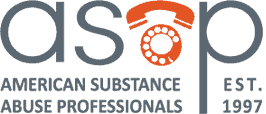Reasonable Suspicion Training: A State-by-State Overview
By ASAP
With rising levels of drug and alcohol use nationwide, workplace safety is more important than ever before.1 While drug and alcohol testing continue to be the foundation of workplace safety, supervisor and employee training is a building block that helps facilitate a safer workplace. Supervisors should receive regular training to recognize the signs and symptoms of potential drug and/or alcohol impairment while at work, and when a reasonable suspicion drug or alcohol test should occur.
What is Reasonable Suspicion Training for Supervisors?
Reasonable suspicion training for supervisors generally provides comprehensive training on the impact of drug and/or alcohol use on an individual’s health, workplace safety, and the overall work environment. Additionally, reasonable suspicion training covers behavioral cues that may indicate drug and/or alcohol use.
Reasonable suspicion training teaches supervisors how to intervene during problem and crisis situations in addition to how to approach employees suspected of being under the influence. Moreover, it can help supervisors recognize the signs and symptoms of alcohol and/or drug use, and when a reasonable suspicion test may be warranted. Reasonable suspicion training ensures that supervisors feel confident in their responsibilities regarding workplace safety and the reasonable suspicion process, including how to send someone for testing.
It is important to note that the Federal Department of Transportation (DOT) has its own requirements relating to reasonable suspicion training for positions that fall under their regulatory oversight. Individual states may choose to defer to DOT regulations in their state laws, but they may also outline specific requirements for non-DOT supervisory positions in applicable state laws.
Why is Reasonable Suspicion Training Important?
It’s easy to overlook anything outside of drug and alcohol testing – that should be enough to keep a workplace safe, correct? Reasonable suspicion training for supervisors, however, is an essential part of a workplace safety program. Supervisors must be trained on how to look for the signs and symptoms of drug and alcohol use, know how to properly document the articulable and contemporaneous event, and when to recommend reasonable suspicion testing for an individual as part of the testing program falling under company policy.
Knowing when to test an employee that is exhibiting the signs and symptoms of impairment is an essential part of preventing potentially catastrophic workplace accidents. 45% of employers state that impairment causes more near misses, and 39% of employers indicate that impairment causes more workplace injuries.2 Having a supervisor that knows how to handle a potential situation and when to recommend a reasonable suspicion test can help avert near misses, workplace injuries, accidents, and even potential fatalities. It can also help your bottom line. The “additional costs” that an employer pays for each employee with an untreated substance use disorder have risen 30% over the past three years.3
State-by-State Requirements
Employers should look to state laws to determine if there are specific content requirements for their supervisor reasonable suspicion training. It is important to understand the various types of state laws that employers may be faced with. Many states have mandatory state laws, which are exactly how they sound – mandatory. Employers that operate in those states are required to comply with all portions of the law(s), no exceptions.
Some states have voluntary laws, meaning laws that an employer can choose to comply with to receive some sort of incentive, usually a discount on a workers’ compensation insurance premium. If an employer wants the incentive offered by the law, they must comply with the law(s) in its entirety. If they do not want the incentive, they can revert back to the state’s mandatory laws and company policy.
Additionally, some states have laws that only apply to specific industries, such as mining, public works, childcare, etc. Following are a few examples of state laws that contain specific requirements pertaining to reasonable suspicion supervisor training.
Arkansas’ voluntary law requires supervisor training to cover how to determine whether reasonable suspicion exists to require employee to undergo testing in compliance with their state laws. Training must be 2 hours long, with one hour covering alcohol use and one hour covering drug use. Employers that choose not to comply with the voluntary laws in the state are not required to comply with the supervisor training requirements.
Illinois has a mandatory law for all public works employees that requires reasonable suspicion training specifically. The law does not specify how long the training must be, what it must contain, or anything beyond the fact that the training must pertain to reasonable suspicion. The best practice standard is to provide one hour of alcohol training and one hour of drug training.
Montana’s mandatory testing law is a bit more complex. Employers in the state are permitted, but not required, to perform reasonable suspicion testing. If they choose to perform reasonable suspicion testing in their workplace(s), they must comply with federal DOT supervisor training requirements outlined in 49 CFR Part 40, which outline extremely specific requirements for reasonable suspicion supervisor training.
Many other states include reasonable suspicion training as part of a larger, more robust supervisor training requirement or supervisor training recommendation withing their mandatory or voluntary law(s). Employers should carefully review state law(s) to ensure compliance in each state of operation.
Conclusion
Understanding why, when, and how to perform reasonable suspicion testing is an essential part of a supervisor’s job – assisting in keeping the workplace safe. Regular training ensures that supervisors have the skills and expertise needed to feel comfortable fulfilling this essential job function. Many employers choose to offer online training to their supervisors to permit training to be completed at their convenience, adapting to the learner’s style. Offering online reasonable suspicion training increases safety and awareness in the workplace while often complying with applicable state laws.
Whether you’re an employer seeking to train supervisors on recognizing the signs and symptoms of substance use in the workplace, or an employee who has a DOT failed drug test, ASAP is here to help. We offer expert training to support workplace safety and compliance, and for employees needing to return to duty SAP referral services, we provide access to a trusted nationwide network of qualified DOT SAP Providers. With over 28 years of experience, we make the process fast, compliant, and supportive. Call 888-792-2727 x.177 to get started today.
Copyright © ASAP – No portion of this article may be reproduced, retransmitted, posted on a website, or used in any manner without the written consent of ASAP. When permission is granted to reproduce this article in any way, full attribution to the author and copyright holder is required.
1 2023 United States National Survey on Drug Use and Health (NSDUH). https://www.samhsa.gov/data/report/2023-nsduh-detailed-tables.
2 “Making the Case: Addressing Workplace Impairment.” National Safety Council, 2025. https://www.nsc.org/workplace/safety-topics/impairment/make-the-case-for-addressing-workplace-impairment?srsltid=AfmBOorIq04A7sezI8dRNX3OtEfjgpkHqEPkOpFCNElr1rnPvfemZiuI.
Additional Reading:
Return to Duty: Employee’s Experiences with Successful DOT SAP Programs
5 Key Differences Between DOT Regulated and Non-DOT Regulated Drug Testing
Drug Testing in the Workplace: Key Trends, Best Practices & Legal Challenges for Employers from 2024


